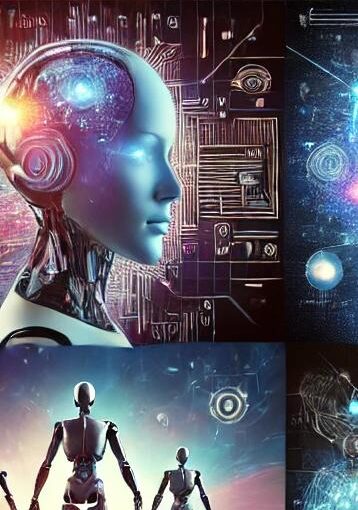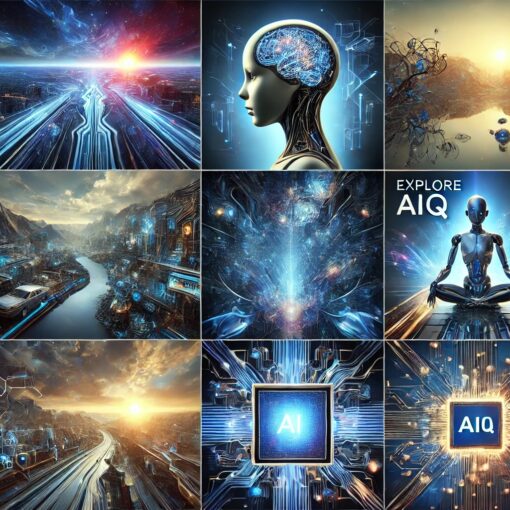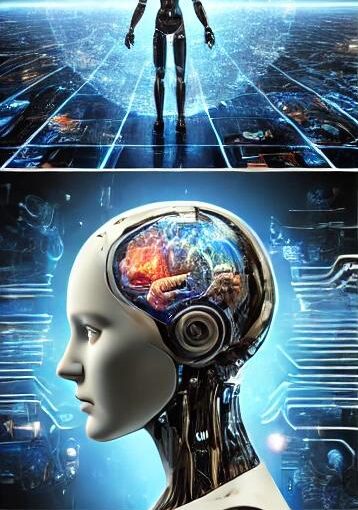Building a Fair and Responsible Future
Introduction: Why Ethical AI Matters
Artificial Intelligence (AI) is transforming industries, solving complex problems, and improving lives. However, with great power comes great responsibility. The rapid development and deployment of AI have raised critical ethical concerns, from bias in decision-making to threats to privacy. As AI continues to permeate every aspect of society, ensuring it operates fairly, transparently, and inclusively is paramount.
In this sixth installment of our AI Terminologies Series, we’ll explore the challenges and principles of ethical AI, real-world examples of ethical dilemmas, and strategies to ensure AI serves humanity responsibly.
What is Ethical AI?
Definition:
Ethical AI refers to the development and deployment of AI systems that adhere to principles of fairness, accountability, transparency, and respect for human rights.
Why It Matters:
Unethical AI can perpetuate biases, invade privacy, and harm individuals or communities. Building ethical AI ensures trust, reduces harm, and maximizes the benefits of this transformative technology.
Example:
A recruitment AI system trained on biased data may favor certain demographics over others, leading to unfair hiring practices.
Key Ethical Principles in AI
- Fairness:
- Ensuring AI systems treat all individuals equitably, without bias or discrimination.
- Challenge: Biases in training data can lead to unfair outcomes.
- Example: An AI model for lending may deny loans disproportionately to certain groups if trained on biased data.
- Transparency:
- Making AI systems understandable and their decision-making processes explainable.
- Challenge: Complex models like deep learning can act as “black boxes.”
- Example: If a healthcare AI denies treatment, patients should know why.
- Accountability:
- Holding developers and organizations responsible for AI outcomes.
- Challenge: Assigning responsibility when AI makes an error or causes harm.
- Example: If an autonomous vehicle causes an accident, who is accountable?
- Privacy:
- Respecting user data and ensuring its secure and ethical use.
- Challenge: AI systems often require vast amounts of data, increasing privacy risks.
- Example: Social media platforms using AI to analyze personal messages without consent.
- Inclusivity:
- Designing AI systems that work effectively across diverse populations.
- Challenge: Underrepresentation of certain groups in training datasets.
- Example: Facial recognition systems failing to identify people with darker skin tones accurately.
Common Ethical Challenges in AI
- Bias in Data and Algorithms:
- AI systems are only as good as the data they’re trained on. If the data contains biases, the AI will perpetuate them.
- Example: Predictive policing tools disproportionately targeting minority communities.
- Job Displacement:
- Automation powered by AI can replace human jobs, raising concerns about unemployment and inequality.
- Example: AI-powered chatbots replacing customer service roles.
- Surveillance and Privacy Risks:
- AI used for surveillance can infringe on individual privacy and lead to misuse by authoritarian regimes.
- Example: AI-powered facial recognition being used for mass surveillance without consent.
- Autonomous Decision-Making:
- Delegating critical decisions to AI, such as in healthcare or criminal justice, raises ethical concerns about accountability and accuracy.
- Example: An AI system recommending parole based on biased historical data.
Real-World Ethical Dilemmas in AI
- Hiring Algorithms:
- Amazon’s recruitment AI was found to favor male candidates because it was trained on historical data dominated by men.
- Facial Recognition Bias:
- Studies have shown that some facial recognition systems have higher error rates for women and people with darker skin tones, leading to misidentifications.
- Predictive Policing:
- AI systems predicting crime hotspots often reflect systemic biases, disproportionately targeting marginalized communities.
- Social Media Algorithms:
- AI used to recommend content can spread misinformation and polarize users, as seen in the Facebook-Cambridge Analytica scandal.
Strategies for Ethical AI Development
- Diverse and Inclusive Data:
- Ensure training datasets are representative of all demographics and free from bias.
- Explainable AI (XAI):
- Develop models that can explain their decisions in understandable terms.
- Ethical Guidelines and Frameworks:
- Adhere to established principles, such as the EU’s AI Ethics Guidelines or IEEE’s Ethically Aligned Design.
- Human Oversight:
- Keep humans in the loop for critical decisions, especially in sensitive areas like healthcare and criminal justice.
- Regular Audits:
- Conduct ethical audits to identify and address biases or risks in AI systems.
- Public Transparency:
- Communicate AI capabilities, limitations, and potential risks clearly to users.
The Role of Regulation and Governance
- Global Initiatives:
- The European Union’s General Data Protection Regulation (GDPR) sets strict rules for data privacy and AI usage.
- AI Ethics Committees:
- Organizations like Google and Microsoft have internal ethics boards to oversee AI projects.
- Open Collaboration:
- Encouraging dialogue between governments, researchers, and companies to establish global standards.
Future of Ethical AI
- Federated Learning:
- A technique that allows AI models to train on decentralized data, enhancing privacy.
- Bias Mitigation Tools:
- Emerging tools for detecting and reducing biases in AI models.
- AI for Good:
- Leveraging AI for ethical purposes, such as disaster response, disease prediction, and education.
- AI Literacy:
- Educating users and policymakers to better understand AI’s capabilities and limitations.
Conclusion: Building a Responsible AI Future
Ethical AI is not a luxury—it’s a necessity. As we develop increasingly powerful AI systems, ensuring they align with human values is critical to building trust and maximizing their benefits. By prioritizing fairness, transparency, and accountability, we can create AI that truly serves humanity.
In the next blog, we’ll explore Building Your First AI Project, a hands-on guide to applying everything you’ve learned so far. Stay tuned to Explore AIQ as we continue our journey into the world of artificial intelligence!




